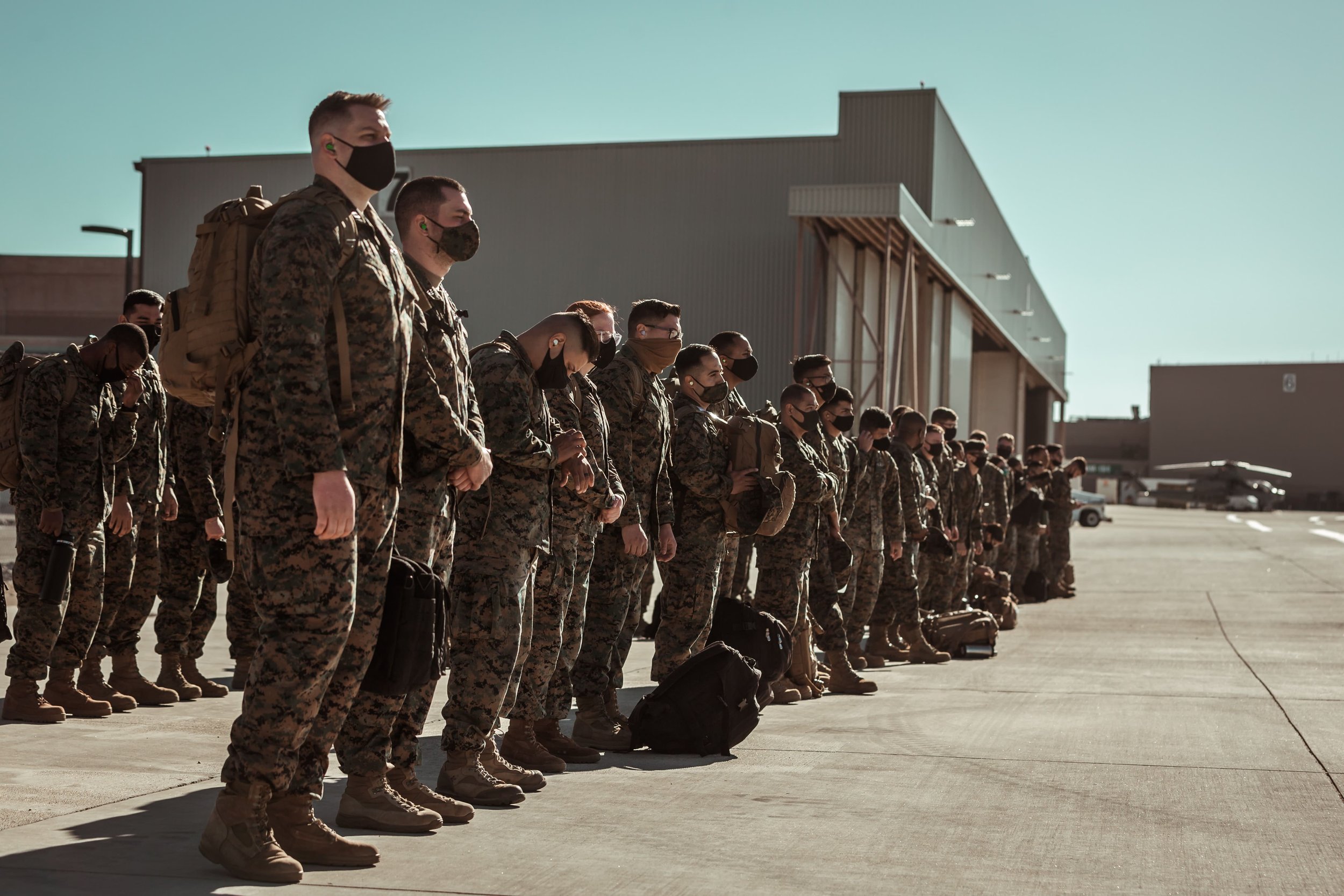THE IMPACT OF DEPLOYMENT
According to a report released by the Department of Defense, as of the end of September 2020, there were 1,333,822 men and women on active duty across all branches of the military. Almost half of them were married and many of them had children and/or adult dependents.
While exact figures are not available, it is safe to say that many of these service members have been, are currently, or will be deployed at some point during their military career. The experience of deployment can have a profound impact on these servicemembers and their families.
WHAT IS DEPLOYMENT?
Deployment occurs when U.S. military troops temporarily move from their home station to locations outside the United States and its territories. Currently, the United States has military personnel deployed in approximately 150 countries, with an average deployment lasting anywhere from 6-12 months. When ordered to deploy, service members are expected to leave their homes, families and day-to-day routines in order to participate in specific military actions, such as combat, humanitarian aid, and peacekeeping efforts.
(Note that being deployed overseas is not the same thing as being stationed overseas. When a service member is stationed overbroad, they are assigned to a new “home” station for 2-3 years and can bring spouses and children with them.)
Regardless of where a service member goes or what he or she does during their deployment, the experience will undoubtedly have a lasting impact on them. It will also have an impact on those they leave behind.
HOW DOES DEPLOYMENT IMPACT SERVICEMEMBERS AND THEIR FAMILIES?
Everyone’s emotional response to deployment is unique, but experts have identified some common trends that they describe as the deployment cycle of emotions. This cycle begins as soon as deployment orders are issued and doesn’t end until long after the deployment has ended. As service members move from anticipation through the deployment itself to their reunion and reintegration, experts warn that everyone should be prepared to deal with:
Heightened tension
Emotional detachment and withdrawal
Overwhelm
Disruption of routine
The key to handling these emotions in a healthy way is honest, open communication between service members and their partners. It’s also important to remember that children are not always as capable of understanding and expressing their emotions as adults and, therefore, may act out as a way of coping with their fear and anxiety.
In addition to the expected stresses of deployment, service members and their families can often feel disconnected or isolated from one another because of the long periods of time during which they are living vastly different lives. This can make maintaining relationships difficult, so it’s important to anticipate these challenges and figure out how to overcome them before they crop up. The 5 Love Languages Military Edition: The Secret to Love That Lasts is a great resource for service members and their families who want to keep their relationships strong, even if they have to spend long periods of time apart.
Beyond the emotional issues described above, deployment has an impact on almost every aspect of daily life for both service members and their families. Service members are thrust into full-time military life, which can include taking on tasks that are difficult or even dangerous. Back home, military spouses and partners must take on the sole responsibility for childcare, taking care of the family’s financial needs, and household management and maintenance.
Fortunately, there are a number of military and civilian organizations dedicated to helping service members and their families cope with the many challenges of deployment. Plan My Deployment helps military families prepare for the realities of deployment, while The Giant List of Deployment Resources for Military Families offers help for a wide variety of military families, including those with children, those who don’t live near a base, and those wanting discounts and freebies.
WHAT YOU CAN DO TO HELP
There are a number of things that we can all do to help service members and their families deal with the impact of deployment.
Acknowledge the Impact
It’s important to recognize that deployment and its impact are different for everyone and there is no “right way” to deal with the complex emotions surrounding this event. Be supportive of those who are currently feeling the impact of deployment, even if their reaction to that impact is not what you expect.
Observe National Day of the Deployed
National Day of the Deployed happens annually on October 26. This is an excellent time to honor the men and women who serve our country overseas as well as the families of deployed service members who keep the home fires burning. Make a point of offering support to service members or military families you may know or attend a ceremony or service being held to commemorate the day.
Learn more about Day of the Deployed here.
Donate Your Time and/or money
There are a lot of organizations that provide support to deployed servicemembers and their families. The True North Foundation works in partnership with several such organizations including Dog Tag Bakery (soldiers-angels-box), which offers customers the opportunity to send gift boxes to deployed service members.
If you want to become more actively involved, consider giving some of your time to Soldiers’ Angels (https://soldiersangels.org/volunteer/virtual-volunteer/), which provides many different ways for you to volunteer, either in person or from the comfort of your own home.
CONCLUSION
If you’d like to learn about more ways you can help servicemembers and their families deal with the impact of deployment, as well as other challenges of military life, consider subscribing to our newsletter.


